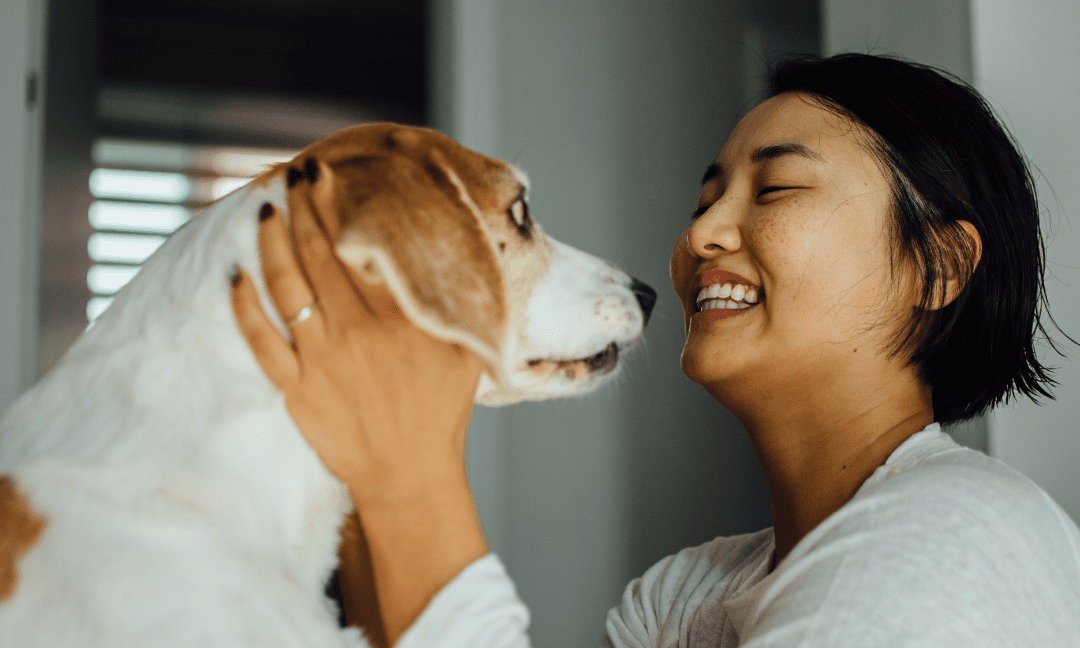Owning a pet can be extremely rewarding but caring for them comes with commitment and a lot of responsibility. Although the thought of adopting a new pet typically comes with feelings of excitement, it is essential to be rational and question your motivation and ability to take care of them to avoid acting impulsively.
The RSPCA receives thousands of unwanted and abandoned animals each year, often due to ill-considered decisions, rising due to increases in ‘opportunistic adoptions’ during the COVID-19 pandemic and more people giving pets as Christmas gifts to unaware or unwilling recipients.
Here are a few of the most important questions to consider before getting a new pet for yourself, or perhaps even someone else (not as a surprise gift).
Am I really a pet person?
Firstly, it is essential to ensure you are a pet person – do you really like animals and are you capable of caring for one? You can determine this by reflecting on your experiences with pets, those you had growing up or those your friends or relatives own. If you have never had experiences with pets, you could offer to care for a friend or relative’s or even volunteer at an animal shelter. Like humans, pets are living, emotional beings that require love and care to live an ideal life and should never be taken into our lives for superficial reasons.
You should also consider personality compatibility between you and your pet of interest. All animal species generally have differing core natures, like the famous contrast between cats and dogs. Cats are typically more reclusive and introverted, whereas dogs are more outgoing and extroverted. Do you prefer a pet that is more independent and enjoys its alone time or one that craves attention and companionship?
Have I done my research?
It is essential to research the physiological, behavioural and social aspects and needs of the species or breed/crossbreed of pet you are interested in to ensure you can provide them with ideal living conditions. Make sure you research an animal’s diet, exercise, housing and habitat (including yard or enclosure space), grooming and veterinary needs to determine if you can meet those vital requirements. Veterinary needs encompass check-up appointments, vaccinations and additional health care crucial for species or breeds/crossbreeds prone to particular health problems. For example, flat-faced animals, such as pugs, are at risk of health problems like difficulty breathing and eye problems due to their exaggerated features.
Will a pet fit into my lifestyle?
Properly caring for a pet can be costly and time-consuming. Do you have the money to afford a pet and its associated costs such as food, a bed, grooming products/services and vet bills? Do you have the patience to potty and obedience train them? Do you have the time and energy to bond with them through exercise, play or petting, keep them healthy and clean up after them? Buying a pet isn’t a great idea if your lifestyle is already full of commitments and responsibilities or lacks the crucial needs of your desired pet, so these questions are essential to consider.
On a similar note, it is important to know when to stop. If you already have a pet (or multiple), you should rationally ask yourself if you can afford and handle more. As much as you want to take in all the animals out there (especially homeless ones), you have limited finances and resources depending on your life circumstances. It is better to recognise and accept your limits than to experience the guilt of giving up your animal due to an ill-considered decision.
What are the laws behind pet ownership?
An area often overlooked during the excitement of considering a new pet is the law.
The first major area is to do with a person’s ability to support and maintain the welfare of an animal – a fitting segue from the previous section. Under Queensland law, the inability to or intent to neglect caring for a pet’s physical and mental welfare is animal cruelty. This legislation (Animal Care and Protection Act 2001) includes causing an animal any “unjustifiable, unnecessary or unreasonable” pain or confining/housing or transporting an animal without appropriate needs such as food, rest, shelter and water.
The Queensland Government states that it is mandatory to have all new cats and dogs microchipped by a vet or other authorised implanter and advises they get desexed. Cats (if the local government area requires it) and dogs must get registered with the local council at an extra cost. Registration requires owners to declare if their pet is microchipped and desexed, is for breeding, or a regulated dog breed (dangerous, menacing or restricted). A permit is required to own more than two dogs (maximum of four) and more than three cats (maximum of 10), and licensing if they are for breeding, racing, sale or show.
If you are interested in more exotic pets aside from your typical cats and dogs, you will need to ensure they are legal to own. In Queensland, there are no restrictions on cats, dogs, guinea pigs, rats, mice and axolotl (walking fish), yet some animals that pose threats to the economy and environment are illegal entirely or illegal without a permit. Prohibited pets in Queensland include chameleons, dingoes, ferrets, foxes, hamsters, iguanas, monkeys, rabbits, squirrels and certain introduced freshwater fish (to name a few). Rabbits are an infamous example, with Queensland being the only state in Australia to prohibit them due to their damage to agriculture and the environment (including threatening many rare and endangered native species).


